Careers Information for Parents and Carers
This section of the Orchard Mead Academy website is aimed at helping parents and carers source information to help support young people in their future decisions. Please contact Phil Longman, Careers Leader on 0116 2413371 or via [email protected] or Beth Tomlins, Independent Careers Advisor on 0116 2413371 or via [email protected] for more information or support.
Talking Futures
When trying to help your child to navigate the world of careers, it can seem tricky! When it comes to education and careers, parents and carers are a big influence in young people’s lives. The Talking Futures website has been designed to help. Talking Futures is a resource created to help parents and carers to have informed and constructive conversations with young people about the different training and education pathways available.
What happens when my child leaves Orchard Mead Academy?
It is compulsory for young people to be in education or training until the age of 18. Scholars can choose options from:
- a full-time course at a college studying for A levels, a T level or a vocational course
- learning while they earn on an apprenticeship, traineeship or study programme
- spending 20 hours or more a week working or volunteering, while in part-time education or training.
The Get the Jump Skills for Life page on the National Careers Service website sets out the different routes.
Four main post 16 pathways
A levels – Advanced level qualifications (known as A levels) are subject-based qualifications that can lead to university, further study, an apprenticeship or work. You usually study A levels over two years and most students choose three subjects to study. A levels are usually assessed by a series of examinations.
Apprenticeships – An apprenticeship is a paid job where the employee learns and gains valuable experiences. Alongside on-the-job training, apprentices spend at least 20% of their working hours completing classroom-based learning with a college, university or training provider which leads to a nationally recognised qualification.
BTECs (vocational) – BTEC stands for the Business and Technology Education Council. BTECs are specialist work-related qualifications. BTECs are designed for young people interested in a particular sector or industry but who are not yet sure what job they’d like to do. They combine practical learning with subject and theory content. There are over 2,000 BTEC qualifications across 16 sectors – they are available from entry level through to professional qualifications at level 7 (equivalent to postgraduate study).
T levels – T levels are new two-year courses equivalent to three A levels. They launched in September 2020 to students in England. Leading businesses and employers helped design T Levels to help to ensure that the content meets the needs of industry and prepares students for work. T-Levels offer students a mixture of classroom learning and ‘on-the-job’ experience; this will include a 45-day work placement, so T levels will be more suited to students who know what occupation or industry they want to move into. What are T Levels video – GOV.UK (www.gov.uk)


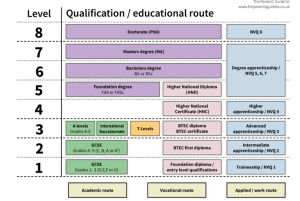
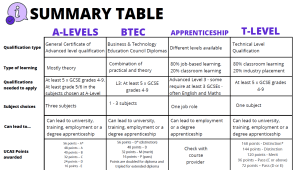






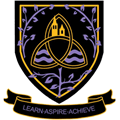
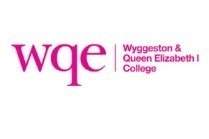
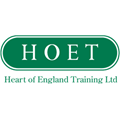
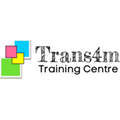


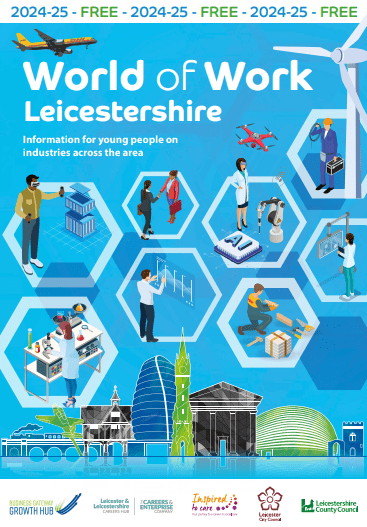
 Together We Can Make a Positive Difference
Together We Can Make a Positive Difference